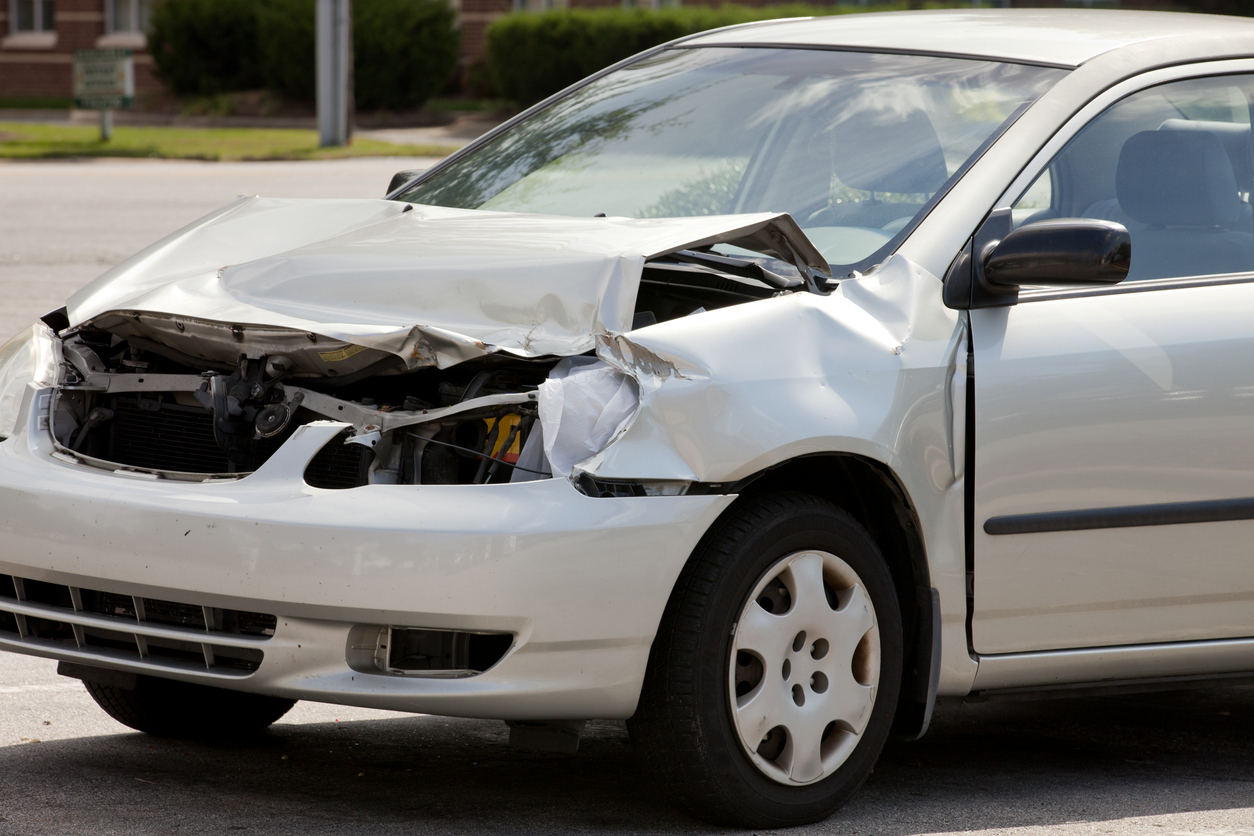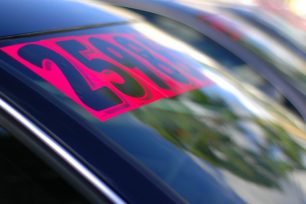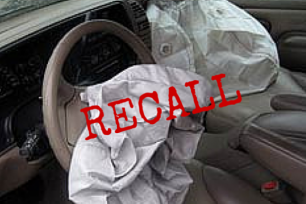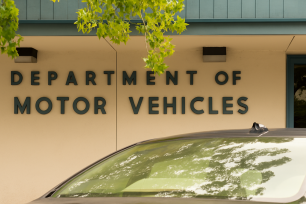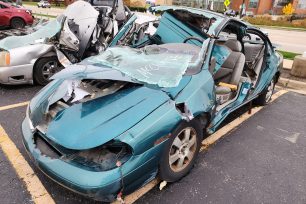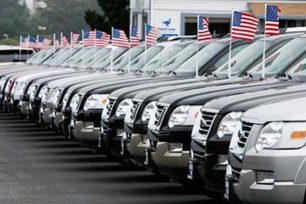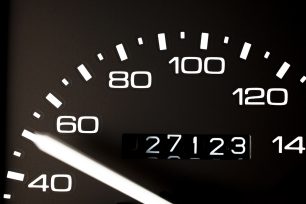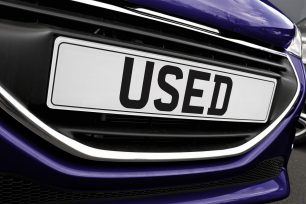Every vehicle has a title, which is an official state-issued document proving ownership. The title includes key details like the vehicle identification number (VIN), owner’s name, and any special brands or statuses related to the vehicle. For example, if a car has suffered severe damage in the past, the title may be branded as salvage. A salvage title is typically assigned when an insurance company or DMV deems a vehicle a total loss after a major accident, flood, or other catastrophic damage. In many states, a salvage title means the car was so badly damaged that repairing it would cost near or above its value. Such a vehicle usually cannot be legally driven or registered until it’s properly repaired and passes a state inspection to receive a rebuilt title.
Why is it so important to check a car’s title status before buying? A salvage-title car can hide serious problems: structural weaknesses, electrical issues from flood damage, or poorly repaired components that make the vehicle unsafe. Unscrupulous sellers may try to sell salvaged cars without full disclosure, a practice known as “title washing,” which can leave you with a dangerous vehicle and a financial headache. Be certain to confirm a car’s title status before you negotiate a price – cars that have been in major accidents or suffered flood damage could be hiding unsafe components, putting drivers and passengers at risk.
We’re going to discuss all the ways you can determine if a car has a salvage title, from paperwork checks to physical inspections. We’ll also provide a comprehensive list of how salvage titles are defined and regulated across all 50 U.S. states and Washington, D.C.
Check the Vehicle’s Title Document
One of the simplest and most reliable ways to tell if a car has a salvage title is to examine the title certificate itself . Ask the seller to show you the vehicle’s title before you negotiate a price or move forward with the purchase. Look closely at the document for any branding or notation that indicates the car’s status. In all states, the title will explicitly say “ Salvage ”, “ Rebuilt Salvage ”, “ Flood ”, or a similar term if the vehicle has ever been branded as such (see the section below for each state’s primary terms). Often the brand is listed in a specific field on the title; it might even be printed in a different color or have a stamp/label indicating salvage or rebuilt status, depending on the state.Carefully verify that the make, model, and year on the title match the car, and that no unexpected brands are noted. If the title says “Salvage” or “Rebuilt”, it confirms the vehicle has a salvage history. Even if the title appears clean, double-check the VIN on the title against the VIN on the car to ensure the title actually belongs to that vehicle and hasn’t been substituted with another model. Tip: If a private seller or dealer is unwilling to show you the title or claims they “lost” it, consider that a red flag – they may be hiding a salvage brand or other problems. Sellers are legally required in most states to disclose a salvage title to buyers, so any lack of transparency is a warning sign.
Obtain a Vehicle History Report
Another essential step is to run a vehicle history report from reputable services such as Carfax, AutoCheck, VIN Lookup, or iSeeCars’ Vehicle Title History tool. These services collect data from insurance companies, DMVs, police reports, and other sources to compile a history of the car. By inputting the car’s VIN, you can see records of past accidents, title changes, and ownership history. Crucially, a history report will show if the car was ever declared a total loss or issued a salvage title in any state. Legally repaired, formerly totaled vehicles will be identified on the title as “salvage” or “rebuilt,” and this information is typically included in commercial history reports. For example, if an insurer deemed the car a total loss due to collision, fire, flood, or theft recovery, the report will note that a salvage or rebuilt title was issued along with the date and the state.When using Carfax, AutoCheck, or similar vehicle history reports, look under the title history or branded title section of the report. If you see terms like “Salvage Title/Certificate Issued” or “Rebuilt Title Issued” with a date, that confirms the vehicle’s salvage history. These reports might also reveal multiple title brands (for instance, if a car was salvaged in one state and then rebuilt in another). Remember that private history reports often charge a fee, but the expense is well worth it to avoid buying a former wreck in disguise. In fact, many dealerships will provide a Carfax or AutoCheck report for free when you’re shopping, and you can also ask the seller if they have a recent report. Always review the history report carefully; if the report shows a salvage title or record of severe damage, either walk away or proceed with extreme caution, and use the vehicle’s salvage status as a negotiating tool.
A vehicle with a salvage history is worth substantially less than a similar model without salvage status. A 20% to 40% drop in market value is a good starting point when considering a salvage vehicle’s price, but due diligence in researching the nature of the car’s past damage and how well it has been repaired is necessary to gauge fair value. If you don’t have the ability or desire to conduct this research you should either enlist the help of someone who does, or not buy a vehicle with a salvage title.
Key point: Not all damage will show up on a history report (for example, unreported accidents), but title brands like “Salvage” are official records and should appear. If a report and the seller both claim the car is clean, you must still be alert for physical evidence of past damage (see next sections) – but using a history report greatly reduces the chance of missing a salvage title.
Use the National Motor Vehicle Title Information System (NMVTIS)
In addition to private reports, you should leverage the National Motor Vehicle Title Information System . NMVTIS is a U.S. government-affiliated database that contains title records from DMVs across the country, as well as salvage and total loss reports from insurance companies and auto recyclers. It’s the only nationwide system to which all junkyards, salvage yards, and insurance carriers are required by law to report total loss vehicles. This makes NMVTIS one of the most robust tools for catching cars with salvage history, even if someone has moved the car between states to “wash” the title.To check NMVTIS, visit an approved NMVTIS data provider such as iSeeCars’ Vehicle Title History tool. Providers typically charge a small fee. Enter the VIN, and you’ll get a report showing the vehicle’s title history across states, including any title brands. Specifically, an NMVTIS report will tell you if the car was ever branded as salvage or junk, or if it was reported as a total loss by an insurer. It also lists the last odometer reading on record and may include some theft data. The report is intentionally concise – it focuses on those red flags like salvage, rather than minor accidents.
Many state DMVs and even used-car dealers use NMVTIS to check vehicles. In fact, in California, dealers must run an NMVTIS report before selling a used car and disclose if the system shows a salvage or junk history. As a consumer, using NMVTIS can give you peace of mind. If NMVTIS shows a salvage brand, consider it conclusive evidence of the car’s status (no matter what the seller or even a Carfax says). On the other hand, if NMVTIS comes back clean, that’s a good sign – but still not a reason to skip other vehicle history checks. Use NMVTIS in combination with a full history report for the best protection.
Check State DMV Title Records
Beyond NMVTIS, you can also check with the state DMV (or motor vehicle agency) directly, especially for the state where the car is currently titled. Many states offer online VIN lookup tools or title status checks. These can reveal if that state’s title for the vehicle is branded. For example, some state DMV websites will tell you if a title is marked as Salvage, Rebuilt, Flood, Lemon Law Buyback, etc., often free or for a small fee. This is another layer of verification, as it taps into the official state database.By performing a VIN search through the state, you can confirm the title status as currently recorded. Keep in mind, a state’s lookup will generally only reflect what that state knows about the car. If the car had a salvage title in a different state, and someone managed to retitle it without that branding in a new state (via title washing fraud), an in-state check alone might miss it. That’s why using the national NMVTIS (previous step) is so crucial for cross-checking multiple states’ data.
To use a state title check, visit the DMV or vehicle registry website for that state. Look for “VIN check” or “title status.” Some states require a written request or a visit to an office if they don’t offer public online databases. If you’re serious about a car, you can also call the state DMV with the VIN and ask if they’ll verify the current title status. It’s worth the effort to ensure you aren’t buying a car with a hidden brand. Between an official state check and NMVTIS, you have strong assurance of uncovering any salvage title on record.
Look Up Insurance Salvage Records (NICB VINCheck)
Another resource is the National Insurance Crime Bureau’s VINCheck tool. The NICB, a non-profit that combats insurance fraud, offers a free online service where you can enter a VIN and find out if the vehicle was reported as salvaged or stolen by a participating insurance company. While not as comprehensive as paid history reports, NICB’s database is very useful as a quick screening tool. It will flag vehicles that were declared a total loss (salvage) by insurers or reported stolen and not recovered.Using NICB’s VINCheck is easy and costs nothing – you can perform up to five VIN searches per IP address per 24 hours. If the car you’re checking appears in the NICB salvage records, you’ll know an insurance company had it marked as a total loss. Do note, however, that NICB relies on data voluntarily provided by insurers. Most major auto insurance companies participate, but it might not catch every salvage vehicle (especially if the damage was never claimed through insurance). It also won’t tell you if a state issued a salvage title per se; it simply shows insurance records of salvage or theft.
Think of NICB VINCheck as a quick initial filter. For instance, if you run the VIN and it comes back with a hit that the car was salvaged in 2019 by XYZ Insurance, and yet the seller claims “clean title,” you have caught them in a lie (or uncovered title fraud). You would then absolutely want to obtain a full Carfax/AutoCheck or NMVTIS report for details. On the other hand, if the NICB shows no record, you should still continue with other methods, but at least you have one less red flag. Always combine multiple checks: a free NICB check plus a DMV/NMVTIS check plus a paid history report, to get the full picture of the title status.
Inspect for Physical Signs of Major Repairs or Damage
Even without paperwork, the car itself can offer clues that it has a salvage history. Salvage vehicles often have been rebuilt after serious accidents or floods, and if the repairs weren’t done to factory standards, you may spot telltale signs upon close inspection. While this method alone isn’t proof of a salvage title, it can strongly indicate past trauma and prompt you to investigate the title further. Here are some physical red flags to look for:- Mismatched or poorly aligned body panels: Walk around the car and examine the gaps between body panels (fenders, doors, hood, trunk). If you notice large or uneven gaps, panels that don’t sit flush, or doors/hood that seem slightly off-kilter, it could indicate the car was in a serious collision and not perfectly repaired. Also look for variations in paint color or finish between panels – for example, a door that’s a slightly different shade or texture than the adjacent panel, or overspray (paint spray mist) on window seals or plastic trim. Mismatched paint and overspray are common signs of subpar body work from accident repairs.
- Evidence of frame or structural repair: Peek under the hood and in the trunk at the inner structures. Signs of welding or fresh undercoating on the frame rails, cut-and-weld marks on the inner fenders, or new welds in the engine bay could mean the car’s structure was straightened or pieced together after a crash. If you see crumpled metal that’s been bent back, or sections of metal that look newer than surrounding areas, be cautious.
- Water damage indicators: Many cars get salvage titles due to flooding. Check for mud, rust, or mold in unusual places. Lift the carpeting in the corners of the trunk and look underneath – dampness, silt, or rust here is a bad sign. Also inspect under the seats and along the floorboards for rust or water stains. A musty or moldy odor inside, or upholstery that has been recently replaced (especially if it doesn’t match perfectly), can also hint at flood damage. Corrosion on electrical connections (like fuses or wires under the dash) is another giveaway of water exposure.
- Airbag and dashboard warnings: Turn on the ignition and verify that all dashboard warning lights illuminate briefly (as they should) and then turn off. If the airbag light stays on continuously, it means there’s an issue with the airbag system. Often in severe accidents, airbags deploy; shady rebuilders might not replace the airbags (due to cost) and instead just shut off the light or remove the bulb. If the light is on, the airbags might be missing or improperly installed – a big safety concern and a hint the car was wrecked. Also, check the airbag cover on the steering wheel and passenger dash – if you see it’s not fitting correctly or looks like it was re-sealed, that could indicate a prior deployment that was patched up.
- Missing factory VIN stickers or other labels: Many cars have VIN stickers or Federal certification labels on door jambs, under the hood, etc. For example, the driver’s door jamb usually has a sticker with the VIN and build info, and each body panel may have a small VIN label. If you notice these labels are missing or one door has a sticker with a different VIN, the panel may have been replaced from a donor car. Missing NHTSA safety labels on doors, hoods, or the trunk (which automakers affix at the factory) can also signal those parts were replaced (possibly after a major wreck).
Keep in mind a skilled rebuilder can hide some of these signs with effort, and a car that was repaired well might look normal. That’s why paperwork checks are vital. However, if you detect any of the above red flags, be very suspicious. It’s often a combination of clues – say, you find overspray under the hood and the history report shows a prior “salvage auction” record – that confirms the story. If you’re unsure, proceed to the next step: getting a professional inspection.
Have a Trusted Mechanic Inspect the Vehicle
Before buying any used car (and especially one you suspect might have a salvage past), it’s wise to get a professional inspection, often referred to as a Pre-Purchase Inspection (PPI) . A qualified mechanic or automotive technician will know exactly where to look for collision or flood damage that a layperson might miss. They can put the car on a lift to examine the undercarriage for frame damage, spot mechanical or safety issues, and give you an unbiased assessment of the car’s condition. In the context of potential salvage-related damage: a mechanic can measure frame alignment, check suspension mounting points, verify that airbags are present, and look for hidden rust or electrical problems.Even if it costs you ~$100–$200 for an inspection, it could save you thousands by preventing a bad purchase. Do not buy from a seller who refuses to allow a pre-purchase inspection. Most honest sellers will agree to an inspection; if the seller resists (“Oh, there’s no need, it’s fine!”), that’s a red flag.
Choose a mechanic who has solid experience with collision repair or used-car evaluations. You can also use specialized services that do pre-purchase inspections (some will even go to the car’s location). The mechanic will give you a report of any problems. If they find evidence of prior major damage or find that VINs on parts don’t match, you’ll know the car likely has a salvage history even if the seller didn’t disclose it.
Some buyers take a car to the manufacturer’s dealership (e.g., a Toyota dealer for a used Toyota) for a thorough multi-point inspection. The advantage is that dealership mechanics might know the common trouble spots for that model and can pull any dealer-service records by VIN. They may notice if, for example, the airbags were replaced outside of authorized channels or if the frame dimensions are off according to factory specs. There are also mobile inspection companies and AAA-approved auto inspectors who specialize in pre-purchase evaluations.
When you request a formal pre-purchase inspection, let the technician know if you have any specific concerns (e.g., “I want to be sure this isn’t a salvage car”). They will likely focus on structural integrity, signs of major repairs, and the presence of all safety equipment – exactly the things that salvage rebuilds often compromise. You’ll get a written report of the car’s condition. This can provide peace of mind or evidence of misrepresentation. As with any inspection, if the seller refuses to allow it, you should walk away. A reputable dealer or seller might even have had the car inspected already (some provide inspection reports or certifications). Just ensure the inspecting party is truly independent of the seller for an unbiased result.
Don’t skip the independent inspection. It provides an extra layer of protection on top of the title checks and can confirm or refute any suspicions you have about the car’s past.
Check for Mismatched or Missing VIN Plates
A car’s VIN is typically found on a plate on the dashboard (visible through the windshield) and on stickers in the door jamb and other parts. Make sure all VIN locations on the vehicle match each other and match the title documents. If you suspect a salvage or fraudulent history, pay special attention to the VIN plates and labels on the car. Every vehicle has multiple VIN identifiers: the primary one is the metal plate on the dashboard (driver’s side, where it meets the windshield). Others may include VIN stickers on the driver’s door or door jamb area, the engine, the frame, etc. Ensure all VINs are identical. If the VIN on the dash doesn’t match the VIN on the title or registration, do not proceed with the purchase – that’s a sign of something very wrong (possibly a stolen car or a swapped title). Even a single digit off could be a clerical error, but a completely different VIN sequence indicates potential fraud.Also examine how the VIN plate is attached. Manufacturers use specific rivets or bolts for the dash VIN plate. If it looks like the VIN plate has been removed or reattached (e.g. glued on, or with updated, non-standard rivets), it could indicate someone tampered with it. This might happen in an attempt to disguise the car’s identity (for instance, affixing a “clean” car’s VIN plate onto a salvaged car). Likewise, check those federal safety certification labels in the door jamb: if they are missing entirely, that door may have been replaced. A replaced door or hood isn’t uncommon in minor repairs, but missing labels across several panels starts to suggest a totaled car rebuilt with junkyard parts.
Ask the Seller About the Car’s Title Status
Sometimes, the simplest approach is to ask direct questions . When speaking with the seller (private owner or dealer), ask: “Is the title clean, or does it have any brand like salvage or rebuilt?” and “Has this car ever been in a major accident or been declared a total loss?” Honest sellers should answer truthfully – and in many states, they’re legally obligated to disclose a salvage title. In fact, most states have laws requiring that if a vehicle for sale has a salvage or rebuilt title, the seller must inform the buyer in writing before the sale. Dealers especially know this; if a dealer hides a salvage title, they could face serious legal consequences for fraud. Private sellers are also generally expected to be truthful and not actively conceal known title brands.However, while disclosure is required, enforcement can be tricky and some unscrupulous sellers (especially those bringing in cars from out of state) may not volunteer the information. That’s why you need to ask explicitly. Observe the seller’s reaction – hesitation or vagueness is suspect. If they say something like “Well, it had a little accident but it’s all good now,” press further: “Was the car ever totaled or given a salvage title?” Sometimes owners will use euphemisms like “rebuilt” or “restored” – these typically mean the same thing as a salvage title (rebuilt from salvage). Insist on a clear answer.
If the answer is yes (the car does have a salvage/rebuilt title), make sure you get that in writing and proceed only if you’re knowingly okay with the risks (and at a much lower price). If the seller says no, the title is clean, you should still verify via the methods above. Sadly, not everyone is honest, so trust but verify. Document your conversation if possible. In the rare case someone outright lies and you later discover the salvage status, that record will help your recourse (see final section on what to do in that case). Bottom line: always ask – a legitimate seller won’t mind and will appreciate that you’re an informed buyer.
Additional Steps for High-Value Vehicles
For high-end or classic vehicles with a salvage title, seeking professional advice from an attorney or a specialized appraiser can be particularly beneficial. Such experts are familiar with the unique legal nuances and potential value fluctuations surrounding rare or luxury automobiles that have been declared a total loss. They can also help you navigate the complexities of transferring a salvage or rebuilt title and interpret state-specific laws that might affect the vehicle’s registration or insurability. Given the potentially high stakes and significant financial investment, it is often worth the extra time and expense to ensure you fully understand the risks and requirements.
Legal Ramifications of Buying a Salvage Title Car (U.S.)
If you are considering buying or have already bought a vehicle with a salvage title, it’s important to understand the legal and practical consequences . Salvage title cars come with extra hurdles in registration, insurance, resale, and disclosure. Here are key points to be aware of in the United States:- Registration and Road Use: A car with a pure salvage title usually cannot be registered or driven on public roads until it’s repaired and inspected by the appropriate authorities. After passing a state inspection, it can receive a rebuilt or reconstructed title which allows registration. Some states also issue “non-repairable” or “junk” certificates for cars that can never be rebuilt (only sold for parts). So, if you buy a salvage vehicle intending to drive it, you must budget for the repairs and the inspection process to get a rebuilt title. Check your state’s rules for rebuilding/certifying a salvage title – there may be paperwork, photos of damage, and receipts required to prove repairs before they issue a new title.
- Insurance: Insuring a salvage or rebuilt car can be more challenging. Many insurers will only offer liability coverage on a salvage/rebuilt title car, not full collision or comprehensive, because it’s hard to assess the vehicle’s value and safety. Some insurance companies refuse to insure rebuilt vehicles altogether, though others (like certain national companies) do offer policies for them. Expect that even if you can get full coverage, the payout in case of another loss will be much lower (since the car’s value is reduced). Always inform your insurance company if a car you bought has a salvage/rebuilt title; if you don’t, it could invalidate a future claim. Also, if you have a loan, the lender will require at least liability insurance, and often they won’t loan finance salvage cars at all (see next point).
- Financing: Obtaining a car loan on a salvage title vehicle can be difficult. Banks and lenders view salvage cars as high-risk – their value is diminished and uncertain. According to industry experts, you should be prepared to pay cash because finding a lender for a salvage car can be challenging. If you’re financing a car and you discover it has a rebuilt title only after purchase, the lender might actually have an issue (since the collateral is not as represented). In many cases, mainstream lenders simply won’t finance the purchase of a salvage car at all.
- Resale Value: Cars with a salvage history typically have much lower resale value. Estimates vary, but a common rule of thumb is a salvage/rebuilt car is worth 20% to 40% less than an equivalent clean-titled car, depending on the severity of damage and the quality of repairs. This means if you buy a salvage vehicle, you should do so at a heavily discounted price to account for this loss in value. Additionally, expect a smaller pool of buyers when you try to sell it. Many people outright avoid salvage cars. Dealers often will not accept a salvage vehicle as a trade-in, or if they do, they offer very little. Essentially, you might have through the end of its usable life because selling it again won’t be easy.
- Disclosure Requirements: If and when you go to sell the vehicle, you are typically required by law to disclose its salvage status to the next buyer, just as your seller should have to you. This varies by state, but most states consider it fraudulent to sell a salvaged or rebuilt car without disclosure. Always pass along the properly-branded title to the buyer. Failure to do so could result in legal action against you later. It’s best to be honest and upfront; not only is it the law in many places, but it’s also the right thing to do for safety.
- Insurance and Registration Nuances: When you purchase a rebuilt salvage car, you might need additional inspections or paperwork to register it. For example, some states require a special salvage inspection (distinct from a regular safety inspection) to verify the car isn’t stolen and is roadworthy. There may be fees for this inspection and for retitling the car. Check your DMV’s requirements on salvage/rebuilt vehicle registration. Also, know that a rebuilt title often stays with the car for life – the title will always note that it’s salvage/rebuilt, so these issues will follow the vehicle no matter how many times it changes hands.
Buying a salvage title car is legally permissible, but it comes with strings attached. You should go in with eyes open: expect more paperwork, limited insurance options, lower value, and the duty to inform future buyers. For many everyday buyers, these drawbacks outweigh any upfront savings on the purchase price, which is why salvage cars are usually only recommended for those prepared to deal with such complications (or those who are experts in car repair).
What Are Your Options if You Unknowingly Purchase a Salvage Vehicle?
Discovering after the fact that your “new” used car has a salvage title can be alarming. Unfortunately, this scenario means something went wrong in the vetting process or the seller misled you. But you’re not without options. Here’s what you can do if you unknowingly bought a salvage-title car:- Contact the Seller Immediately: Reach out to the seller (dealer or private party) as soon as you find out. It’s possible there was a mistake or oversight. In some cases, a reputable dealer might offer to unwind the deal or compensate you if they failed to disclose the salvage title. Be polite but firm – explain that the title you received or a DMV check shows a salvage brand that was not disclosed. If it was a private seller who misrepresented the car, they may be harder to pin down, but it’s important to notify them that you’re aware of the issue.
- Check Your State’s Laws and Consumer Protections: As noted, most states have laws that require disclosure of salvage titles. If the seller did not disclose this, they could be in violation of consumer protection laws. Document everything – the advertisement (if it was listed online), any texts/emails, and your bill of sale. Then, contact your state’s Attorney General’s office or consumer protection agency to file a complaint or seek guidance. These agencies might mediate or even pursue action against a fraudulent seller.
- Consult an Attorney if Needed: If the seller is not cooperating, especially in a significant transaction, you may need to get a lawyer’s help. Fraudulently selling a salvage car as “clean” can potentially void the sale contract. An attorney can advise whether you have grounds to rescind the sale (cancel the deal and get your money back) due to fraud or misrepresentation. In some cases, just informing the dealer that you’ve spoken with a lawyer and are aware of your rights will prompt a resolution. If it’s a private seller and a lot of money is at stake, a legal letter might be necessary. Small claims court is another avenue if the amount falls under your state’s threshold.
- Notify Your Insurance Company and Lender: If you financed the car or have it insured, you must inform the lender and insurer of the salvage title discovery. This is critical because it can affect your loan and coverage. There’s a risk the insurer might drop collision/comprehensive coverage or even cancel the policy if they don’t insure salvage cars. Similarly, a lender might demand you carry certain insurance which could be impossible on a salvage car. Explain to them that you were unaware at the time of purchase. They may have procedures for this scenario. Sometimes they already know (lenders and insurers often run VIN checks themselves), but you don’t want to be accused of hiding it. In the worst case, if insurance refuses to cover the car and the lender won’t accept it as collateral, you may have to renegotiate or refinance – which again circles back to dealing with the seller legally.
- Safety First – Get the Car Inspected: While sorting out the above, make sure the vehicle is safe to drive. Because it has a salvage history, if you haven’t already, have a trusted mechanic do a thorough safety inspection. You want to know if there are any critical issues (e.g., missing airbags, frame cracks, etc.). If the car is not safe, stop driving it. This also bolsters your case that you were sold an unroadworthy vehicle without proper disclosure.
- Accept and Mitigate (if stuck with the car): In some instances, you might end up keeping the salvage-title car – perhaps the price was still fair for what it is, or legal recourse isn’t practical (for example, the seller is unreachable). If so, make the best of it. Ensure you get a rebuilt title in your name (if it wasn’t already rebuilt, you’ll have to go through the inspection process). Maintain the car well and keep records of repairs. You’ll likely have to stick to liability insurance if full coverage is unavailable or not cost-effective. And understand the car’s resale will be limited – you may choose to run it for as long as possible. It’s not ideal, but plenty of people do end up owning salvage cars and managing fine; just be aware of the limitations.
Important: Do not hesitate to use legal and consumer protection channels. A dealer misrepresenting a salvage car can face penalties, and you as the buyer could get relief. Laws vary, but your chances of a remedy are good if you act promptly. In the end, this unfortunate situation underscores why it’s so crucial to do the title checks before purchase. If you’re reading this article beforehand – great, you’re taking the right steps to avoid ever being in that position!
As a used car shopper, you can save time, money, and post-purchase regret by employing proper due diligence before you buy. Always verify the title status through documents and databases, inspect the vehicle for signs of past damage, and be direct with the seller about your expectations. A salvage title doesn’t necessarily mean a car is worthless or undrivable – some rebuilt cars can serve their owners well – but it does mean the car has been through a major event and comes with baggage. As an everyday car buyer, your best bet is usually to avoid salvage vehicles unless you have a specific reason and knowledge to pursue one. By following the methods outlined above, you’ll greatly reduce the risk of unknowingly buying a salvage title car. In turn, you’ll protect your wallet, your safety, and your peace of mind on the road.
State-Based Primary Term Variations and Other State-Specific Salvage Title Information
Understanding how salvage titles are handled varies between states, and it’s essential for car buyers to be aware of the specifics where they live—or where the vehicle is titled. Listed below is a comprehensive, state-by-state breakdown of how salvage titles are defined and regulated across all 50 U.S. states and Washington, D.C. For each state, you’ll find the primary official terms used for salvage and rebuilt vehicles, the legal criteria that define when a vehicle is classified as salvage, what disclosure laws apply to both dealers and private sellers, and what legal recourse is available if a buyer unknowingly purchases a salvage-title vehicle. This guide reflects information current as of 2025; however, because laws and administrative procedures can change, readers are strongly encouraged to verify the latest details directly with their state’s Department of Motor Vehicles or equivalent agency.Alabama
- Official Terms for Salvage: Salvage Title; Restored (Rebuilt) Title; Junk & Flood Designations Alabama issues a salvage title for totaled vehicles, a restored/rebuilt title once those vehicles are repaired and pass inspection, and labels vehicles as junk (non-repairable) or flood vehicle (if submerged enough to be total losses).
- Legal Definition of Salvage: ≥75% Damage or Total Loss A vehicle is deemed a total loss salvage if damage is at least 75% of its fair retail value. Insurance total-loss payouts (including theft) also trigger salvage branding. Flooded vehicles with total-loss payouts receive a flood designation on the title.
- Disclosure Requirements Must Disclose in Writing: Any seller—dealer or private—must give written disclosure if a vehicle’s title is labeled salvage or rebuilt. This typically requires a statement in at least 10-point type: “This vehicle’s title contains the designation salvage or rebuilt.” Flood vehicles require a similar notice.
- Buyer Recourse if Undisclosed Cancellation & Legal Action: Failing to disclose is illegal. Buyers can seek to unwind (cancel) the sale. Alabama law allows criminal penalties for nondisclosure. Buyers can also file complaints with the Alabama Department of Revenue or the Attorney General. Misrepresentation can support a fraud claim to recover the purchase price or additional damages.
Alaska
- Official Terms for Salvage: Salvage Title; “Junk/Parts Only” Title; Reconstructed Vehicle A salvage title is issued for total-loss vehicles; a non-repairable (parts-only) title is used for irreparably damaged vehicles; and a reconstructed title is granted once a salvaged vehicle is repaired.
- Legal Definition of Salvage Total Loss (Actual or Constructive): Alaska defines salvage vehicles as those that are either actually totaled (severely wrecked or destroyed) or constructively totaled (repair costs exceed the vehicle’s worth). Insurer total-loss declarations trigger salvage branding.
- Disclosure Requirements Required Dealer Disclosures: Dealers must comply with Alaska’s used-car damage disclosure law (AS 45.25.465). They must obtain and share any accident/rebuild history. Any branded title (salvage or junk) must be revealed. Private sellers are bound by common-law fraud and must be truthful about known salvage.
- Buyer Recourse if Undisclosed Consumer Remedies: Nondisclosure is unlawful and considered an unfair or deceptive act. Buyers can file complaints with the Alaska Attorney General’s Consumer Protection. Dealers can face penalties, and private buyers may pursue civil fraud remedies to rescind the sale or recover damages.
Arizona
- Official Terms for Salvage: Salvage Certificate of Title; Restored Salvage; Nonrepairable Arizona issues a salvage certificate of title for total-loss vehicles, a restored salvage title after repairs, and a nonrepairable certificate for vehicles only suitable for parts.
- Legal Definition of Salvage Total Loss or Uneconomical Repair: A “salvage vehicle” is one that is damaged or destroyed to the point it’s uneconomical to fix (no fixed percentage). Insurer declaration of total loss qualifies as salvage. Flood or theft can also trigger salvage branding.
- Disclosure Requirements Mandatory Disclosure by Law: Arizona Revised Statutes §28-2091(O) requires any seller to disclose a salvage or restored salvage title before sale, whether private or dealer. Usually, the buyer signs a written acknowledgment.
- Buyer Recourse if Undisclosed Voidable Sale & Penalties: Selling a salvage vehicle as clean in Arizona is a class 2 misdemeanor. The buyer can rescind the sale for fraud, and dealers face license discipline. Buyers should file complaints with the Arizona DOT or the AG.
Arkansas
- Official Terms for Salvage: Salvage Title; Rebuilt Title; “Junk” Arkansas brands severely damaged vehicles as salvage, repaired vehicles as rebuilt, and irreparable vehicles as junk.
- Legal Definition of Salvage ≥70% Damage or Flood: A salvage vehicle is one with ≥70% damage of its average retail value, or submerged above the dashboard (i.e., flood). Vehicles over seven model years old may be exempt.
- Disclosure Requirements Strict Disclosure (Dealer Notice): Dealers must post a “buyer’s notification” on salvage vehicles, detailing damage and repairs. All sellers must inform buyers if the title is salvage or rebuilt.
- Buyer Recourse if Undisclosed Refund & Legal Action: Buyers may cancel the purchase for a full refund if the seller doesn’t disclose salvage status. Nondisclosure is criminal and subject to AR consumer protection laws. Complaints go to the Arkansas AG.
California
- Official Terms for Salvage: Salvage Certificate; Revived Salvage; Nonrepairable (“Junk”) Vehicles declared total loss get a salvage certificate; if they’re repaired, they can be registered as revived salvage; unrecoverable vehicles get a nonrepairable (junk) certificate.
- Legal Definition of Salvage Total Loss (Too Costly to Fix): No strict percentage; an insurer’s total-loss determination triggers a salvage brand. Flood, fire, vandalism can also qualify. Junk vehicles cannot be retitled.
- Disclosure Requirements Disclosure Required by Law: Sellers (dealers, private) must disclose salvage history. Dealers must also run and share NMVTIS reports with buyers. Hiding a salvage brand is a known issue in out-of-state title washing.
- Buyer Recourse if Undisclosed Remedies for Buyers: Selling salvage as clean is fraud. Under CA’s consumer laws, buyers can rescind the sale and recover damages. The DMV or AG can penalize dealers. Complaints can be filed with the California DMV Enforcement Division.
Colorado
- Official Terms for Salvage: Salvage Title; Rebuilt from Salvage After passing inspection, salvage vehicles receive a rebuilt from salvage brand on the new title.
- Legal Definition of Salvage Varies (Total Loss or 100% Formula): Colorado law covers any vehicle declared a total loss. Historically, the state used a 100% threshold. The brand “salvage” is noted until an inspection is done.
- Disclosure Requirements Written Disclosure & Affidavit: Sellers must give a Rebuilt from Salvage Disclosure Affidavit to buyers, who must sign acknowledging the vehicle’s salvage history.
- Buyer Recourse if Undisclosed Full Refund by Law: Buyers are entitled to a full refund if that affidavit wasn’t provided. Failure to comply is a misdemeanor, and buyers can contact the Colorado DMV or AG.
Connecticut
- Official Terms for Salvage: Salvage Title (Stamped “SALVAGE”); “Salvage - Parts Only/Unrebuildable” Flood- or collision-totaled vehicles are labeled salvage. If damage is especially severe (≥10 major components), the certificate is “parts only.”
- Legal Definition of Salvage Total Loss by Insurer or Owner: Any vehicle that an insurer deems a total loss must get a salvage stamp. “Salvage parts only” is for unrepairable wrecks. Driving salvage vehicles is illegal until rebuilt/inspected.
- Disclosure Requirements Title Branding & Transfer Disclosure: The salvage stamp on the title itself is the main disclosure. Sellers must provide the title, plus an appraisal report for damage. “Parts only” vehicles can only be sold to junk yards.
- Buyer Recourse if Undisclosed Buyer Protections: Concealing a salvage brand is fraud under CT Unfair Trade Practices. A misrepresented sale is voidable. Buyers can file with the Connecticut DMV or AG’s office.
Delaware
- Official Terms for Salvage: Salvage Title; Reconstructed Title; Flood Vehicle A salvage title indicates total loss, and reconstructed (rebuilt) is used after repairs. “Flood damaged” is a distinct brand.
- Legal Definition of Salvage Total Loss or No Fixed %: Insurance total losses or severely damaged cars get salvage titles; flood-damaged cars get “flood” brand. Once rebuilt, the new title says “reconstructed.”
- Disclosure Requirements Dealer Must Disclose & Document: Under 21 Del. Code §6309(d), dealers must disclose a salvage or flood brand in writing. The buyer signs a disclosure statement for the DMV. Private sellers are covered by fraud laws.
- Buyer Recourse if Undisclosed Rescission & Penalties: The buyer can cancel the sale and get a refund if no disclosure statement was given. Dealers can lose their license. Complaints go to the Delaware DMV or AG’s Consumer Protection Unit.
Florida
- Official Terms for Salvage: Salvage Title; Rebuilt Title; Certificate of Destruction (Non-repairable) Florida uses “salvage rebuildable” or “salvage non-rebuildable.” Flood vehicles get “salvage flood.” A repaired salvage passes inspection for a rebuilt title.
- Legal Definition of Salvage ≥80% Damage or Total Loss: If estimated repair cost is 80%+ of the car’s Actual Cash Value (ACV), it’s declared salvage. Flooded vehicles get a “salvage flood” brand. Non-repairable cars get a Certificate of Destruction.
- Disclosure Requirements Written Disclosure of Branded Titles: Dealers must disclose branded titles (salvage, rebuilt, flood) in writing, and the brand appears on the title. Private sellers are also required to be truthful under Florida law.
- Buyer Recourse if Undisclosed Enforcement & Remedies: Failing to disclose salvage status is an unfair or deceptive act. Buyers can file a complaint with FLHSMV or the AG and may sue under the Deceptive and Unfair Trade Practices Act. Dealers can face license penalties.
Georgia
- Official Terms for Salvage: Salvage Title; Rebuilt Title; “Parts Only” Georgia labels wrecked vehicles salvage; after passing inspection, they become rebuilt. Non-repairable cars are “Parts Only.”
- Legal Definition of Salvage Damage Requires ≥2 Major Parts or Total Loss: A vehicle is salvage if it needs two or more major components replaced or if declared total loss. Flood vehicles and out-of-state salvage are also included.
- Disclosure Requirements Regulated Disclosure: Georgia generally prohibits selling an unrepaired salvage vehicle to a regular consumer. If rebuilt, the title must say “rebuilt,” and the seller must disclose prior salvage. Dealers and private parties must not misrepresent.
- Buyer Recourse if Undisclosed Penalties for Non-Disclosure: Such sales can lead to fraud charges or civil liability. Buyers can file with the GA Department of Law (Consumer Protection) and sue for rescission or damages.
Hawaii
- Official Terms for Salvage: Salvage Title Hawaii’s salvage title applies to total-loss vehicles. There is not a separate “rebuilt” title form, but after repairs, the title history still notes salvage.
- Legal Definition of Salvage Total Loss: If repair costs exceed the car’s value, it’s totaled. The owner/insurer must apply for a salvage title within 30 days. No fixed percentage is stated.
- Disclosure Requirements Implied Disclosure: No explicit statute requires a special salvage disclosure form, but it’s fraud to hide salvage status. The branded title itself is the main notice.
- Buyer Recourse if Undisclosed Legal Recourse: Concealing salvage status can void the sale. Buyers can pursue fraud claims and contact Hawaii’s Office of Consumer Protection. Dealers risk license penalties for misrepresentation.
Idaho
- Official Terms for Salvage: Salvage Certificate; Rebuilt Salvage; Dismantled (Junk) Salvage certificates apply to total-loss vehicles. A new title without the salvage brand is issued after repairs, though the record keeps a rebuilt annotation.
- Legal Definition of Salvage Total Loss (≥ Vehicle Value): If repair costs meet/exceed the vehicle’s value, it’s a total loss. Any such vehicle must have a salvage certificate.
- Disclosure Requirements Required Disclosure (All Sellers): Dealers must provide conspicuous written disclosure if a vehicle is salvage or rebuilt; private sellers are similarly required to inform buyers. The brand remains part of the permanent record.
- Buyer Recourse if Undisclosed Fraud Penalties: Nondisclosure is an unfair trade practice, allowing buyers to rescind and sue for damages. The Idaho Transportation Department and AG can penalize violators.
Illinois
- Official Terms for Salvage: Salvage Certificate; Rebuilt Vehicle; Junking Certificate; Flood Vehicle A salvage certificate is not a registration—after repairs, a rebuilt vehicle title is issued. “Junking” is only parts usage.
- Legal Definition of Salvage ≥33⅓% Damage: If damage exceeds one-third of the fair market value for certain vehicles, it’s salvage. Flood vehicles must be branded “flood.” Total losses also trigger salvage/junk.
- Disclosure Requirements Full Disclosure Required (Dealers): Dealers must disclose salvage/rebuilt status in writing. Private sellers pass along the salvage/rebuilt certificate. Hiding salvage is a felony offense.
- Buyer Recourse if Undisclosed Return & Report: The buyer can return the vehicle for a full refund. Complaints go to the Illinois AG. Under the Consumer Fraud Act, buyers can sue for damages and attorney fees. Dealers risk felony charges.
Indiana
- Official Terms for Salvage: Salvage Title; Rebuilt Salvage; Scrap (Junk) A salvage title is issued for any severe damage; after repairs, the title is branded rebuilt salvage. Junk vehicles can’t be retitled.
- Legal Definition of Salvage ≥70% Damage: Indiana sets a 70% threshold. Cars that an insurer declares total loss also qualify.
- Disclosure Requirements Unfair Practice Not to Disclose: IC §9-32-13-6 forbids dealers from selling a salvage/rebuilt without a written disclosure. Private sellers are also subject to fraud laws.
- Buyer Recourse if Undisclosed Buyer Remedies: Buyers can rescind the sale or sue for damages under Indiana’s deceptive practices. The AG or BMV can penalize dealers. Private sellers can be sued for fraud.
Iowa
- Official Terms for Salvage: Salvage Title; Rebuilt Title; Junking Certificate Salvage titles apply to heavy damage. After a theft/salvage examination, a new title is branded “prior salvage.” Junking certificates are for non-repairable vehicles.
- Legal Definition of Salvage ≥70% Damage: Vehicles with repair costs over 70% of market value must be salvaged. Total-loss insurance claims typically trigger it. Older than seven years may be exempt.
- Disclosure Requirements Seller Disclosure: Rebuilt titles are branded “prior salvage.” Dealers must follow honest advertising rules. Private sellers must not mislead. The brand on the title serves as notice.
- Buyer Recourse if Undisclosed Enforcement: Buyers can void a fraudulent sale and sue. The DOT can investigate title issues. The Iowa AG handles consumer fraud complaints.
Kansas
- Official Terms for Salvage: Salvage Title; Rebuilt Salvage; Nonrepairable Salvage is for major damage; after repairs and inspection, it’s “rebuilt salvage.” Nonrepairable vehicles cannot return to roads.
- Legal Definition of Salvage ≥75% Damage: For a late-model vehicle, if repairs cost 75% or more of retail value, it must be salvaged. Insurer total losses also apply.
- Disclosure Requirements Disclosure Requirements: The branded title itself is the key disclosure. Dealers must not sell a salvage car under a clean title. Private sellers also must convey the branded title.
- Buyer Recourse if Undisclosed Buyer Remedies: Misrepresentation is fraud, and the buyer can rescind the sale. Kansas AG can enforce the Consumer Protection Act. Dealers can lose licenses.
Kentucky
- Official Terms for Salvage: Salvage Title; Rebuilt Title; Junk (Parts-Only) A salvage title is for total loss vehicles, a rebuilt title after repairs. Junk is not drivable.
- Legal Definition of Salvage Total Loss (~75% Rule): Kentucky typically considers a vehicle salvage if it’s totaled (repair cost near or above 75% of value). Insurer total loss triggers a salvage title.
- Disclosure Requirements Disclosure: Sellers must present the salvage/rebuilt title to buyers. Dealers cannot misrepresent. The brand is noted on the title and must be carried forward.
- Buyer Recourse if Undisclosed Recourse: Buyers can rescind the sale under Kentucky’s Consumer Protection Act. Complaints go to the Kentucky AG. Dealers risk fines/license penalties.
Louisiana
- Official Terms for Salvage: Salvage Title; Rebuilt Title; Certificate of Destruction After repairs, the title is branded rebuilt salvage. Non-repairables get a Certificate of Destruction.
- Legal Definition of Salvage ≥75% Value or Total Loss: If damage is 75% or more of the vehicle’s value, or the insurer deems it a total loss, it’s salvage. Flood damage can also cause salvage branding.
- Disclosure Requirements Disclosure: Dealers must reveal salvage or rebuilt status, often via a posted notice. Private sellers must provide the salvage or rebuilt title. Concealment is illegal.
- Buyer Recourse if Undisclosed Buyer Recourse: Selling salvage as clean is fraud. The buyer can file under the Unfair Trade Practices Act for damages or rescission. The OMV and AG can act against violators.
Maine
- Official Terms for Salvage: Salvage Title; Rebuilt Title Salvage applies to vehicles under six model years old that are totaled. After repairs, it’s titled rebuilt salvage (some older vehicles are exempt).
- Legal Definition of Salvage Total Loss (No Fixed %): If insurers total a vehicle <6 years old, it must have a salvage title. Owners cannot register it until it’s rebuilt and passes inspection.
- Disclosure Requirements Disclosure: The branded title is the main notification. Dealers must not conceal salvage status. Private sellers must also provide the salvage or rebuilt title.
- Buyer Recourse if Undisclosed Recourse: Buyers can use Maine’s Unfair Trade Practices Act to void the sale and seek damages. The state BMV can investigate. Complaints go to the Maine AG.
Maryland
- Official Terms for Salvage: Salvage Certificate; Rebuilt Salvage; Nonrepairable The Maryland MVA categorizes salvage as “repairable,” “flood,” or “non-repairable.” Repaired cars get a “rebuilt salvage” title.
- Legal Definition of Salvage Total Loss / Theft: Any total-loss insurance settlement prompts a salvage certificate. Flood or heavily damaged theft recoveries also get salvage branding.
- Disclosure Requirements Disclosure: Dealers must disclose salvage history. Titles show “rebuilt salvage.” Concealment is illegal under Maryland’s consumer laws.
- Buyer Recourse if Undisclosed Buyer Remedies: It violates the MD Consumer Protection Act to sell salvage as clean. Buyers can rescind or sue for damages. The MVA and AG enforce violations.
Massachusetts
- Official Terms for Salvage: Salvage Title; Reconstructed Title A salvage title is for total-loss vehicles under 10 years old; repaired ones become “reconstructed” after an inspection.
- Legal Definition of Salvage Total Loss: If the insurer deems the damage a total loss (no specific %). It is illegal to drive salvage until it’s rebuilt and passes inspection.
- Disclosure Requirements Disclosure: Sellers of reconstructed vehicles must inform buyers of their salvage origin. The title says “reconstructed.” Dealers cannot misrepresent per MA law.
- Buyer Recourse if Undisclosed Recourse: The buyer can act under MA consumer protection (93A) for a refund and potentially multiple damages. The RMV can also investigate. Complaints go to the MA AG.
Michigan
- Official Terms for Salvage: Salvage Title; Rebuilt Salvage; Scrap Title Salvage applies to late-model vehicles with severe damage. Once inspected, the new title is branded “rebuilt salvage.”
- Legal Definition of Salvage ≥75% Damage (Late-Model): Vehicles ≤6 model years old with damage ≥75% of value must be salvaged. They cannot be registered until rebuilt.
- Disclosure Requirements Disclosure: Dealers must label rebuilt salvage in writing. Private sellers transfer the branded title. Hiding salvage is against Michigan Consumer Protection Act.
- Buyer Recourse if Undisclosed Recourse: Buyers can seek rescission, damages, and report to the Secretary of State (dealer oversight). Violators may face fines or license revocation.
Minnesota
- Official Terms for Salvage: Salvage Title; Prior Salvage A salvage title becomes “prior salvage” on the new title after repair/inspection.
- Legal Definition of Salvage ≥80% Damage: Damage over 80% of the car’s Actual Cash Value (ACV) triggers salvage for newer cars (≤6 years old). The state requires an inspection before re-registration.
- Disclosure Requirements Disclosure: “Prior salvage” is on the title. Sellers, including dealers, must disclose the prior salvage brand in writing. Failing to do so is unlawful.
- Buyer Recourse if Undisclosed Buyer Remedies: The buyer can cancel the sale or sue under Minnesota fraud statutes. The AG can prosecute. Dealers may face penalties.
Mississippi
- Official Terms for Salvage: Salvage Title; Rebuilt Title Totaled vehicles get a salvage title; repaired ones are retitled with a rebuilt brand.
- Legal Definition of Salvage Total Loss (Formula): Insurers total a vehicle if repair cost ≥ Actual Cash Value (ACV). That vehicle must get a salvage title.
- Disclosure Requirements Disclosure: The salvage or rebuilt brand appears on the title. Dealers cannot claim the car is clean. Private sellers must be truthful.
- Buyer Recourse if Undisclosed Recourse: Buyers can file complaints with the AG and sue for fraud. The state can fine or prosecute dishonest dealers. The sale may be undone.
Missouri
- Official Terms for Salvage: Salvage Title; Prior Salvage; Junking Certificate A salvage title is replaced by a “prior salvage” title once the car is rebuilt.
- Legal Definition of Salvage ≥80% Damage: For a vehicle ≤6 years old, if repair costs ≥80% of its value, it’s salvage. Insurer total losses also qualify.
- Disclosure Requirements Disclosure: Sellers must tell buyers if the title is prior salvage. Dealers must provide a disclosure form. Misrepresentation violates MO law.
- Buyer Recourse if Undisclosed Buyer Remedies: Under Missouri’s Merchandising Practices Act, the buyer can void the sale and get damages. The DOR can investigate. Complaints go to the AG.
Montana
- Official Terms for Salvage: Salvage Certificate; Rebuilt Title Total-loss vehicles get salvage certificates. After repairs/inspection, a rebuilt brand is placed on the new title.
- Legal Definition of Salvage Total Loss: Any insurer- or owner-declared total loss is salvage. Generally ~75% damage is the practical threshold.
- Disclosure Requirements Disclosure: The salvage or rebuilt brand is on the title. It’s illegal to sell a salvage car as clean. Dealers must not misrepresent under consumer protection laws.
- Buyer Recourse if Undisclosed Recourse: Buyers can cancel the deal and sue. The MT DOJ and Consumer Protection Office can act. Title fraud can be criminally prosecuted.
Nebraska
- Official Terms for Salvage: Salvage Title; “Previously Salvaged” Title A salvage certificate (orange) is issued first. After rebuilding and inspection, the title is branded “Previously Salvaged.”
- Legal Definition of Salvage ≥75% Damage (Late-Model): Vehicles ≤7 years old damaged ≥75% of retail value are salvage. The owner must obtain a salvage title within 30 days of total loss.
- Disclosure Requirements Title Branding & Transfer Disclosure: Once a vehicle is rebuilt, the new title says “Previously Salvaged.” Selling a salvage vehicle to a consumer before rebuilding is disallowed.
- Buyer Recourse if Undisclosed Remedy: If a required salvage brand is missing, the sale is invalid. Buyers can get a refund. The Nebraska DMV or AG can impose penalties.
Nevada
- Official Terms for Salvage: Salvage Title; Rebuilt Vehicle; Non-Repairable Certificate Salvage titles are orange. Rebuilt titles are blue, branded “rebuilt.” Non-repairable vehicles cannot be retitled.
- Legal Definition of Salvage ≥65% Damage: If repair costs ≥65% of the vehicle’s value, it’s a total loss. Flooded or vandalized vehicles can also be salvage. Older cars may have exemptions.
- Disclosure Requirements Strict Sale Restrictions: Unrepaired salvage vehicles can only be sold to licensed rebuilders, not to the general public. Sellers must disclose salvage or face felony penalties for title fraud.
- Buyer Recourse if Undisclosed Penalties and Remedies: Improper salvage sales are a felony. A buyer can void the sale and should report it to the DMV Compliance Enforcement. Sellers risk prosecution.
New Hampshire
- Official Terms for Salvage: Salvage Title; Rebuilt Title Salvage applies to newer vehicles under ~15 years old. A repaired salvage passes inspection and becomes rebuilt.
- Legal Definition of Salvage ≥75% Damage: If repairing costs ≥75% of the vehicle’s value, it’s salvage. The vehicle cannot be registered until rebuilt.
- Disclosure Requirements Disclosure: Title branding is required; sellers must not claim a salvage car is clean. Written disclosure is mandated for vehicles <5 years old (significant damage rule).
- Buyer Recourse if Undisclosed Buyer Remedies: Buyers can rescind the sale for fraud under NH Consumer Protection laws. Complaints go to the DMV Title Bureau or the AG. Courts can mandate refunds.
New Jersey
- Official Terms for Salvage: Salvage Certificate; Rebuilt Salvage/Reconstructed Insurers issue a salvage certificate. After repair/inspection, the DMV issues a rebuilt (reconstructed) title. Flood or theft also get special brands.
- Legal Definition of Salvage Total Loss (Formula): If repair cost + salvage value ≥ Actual Cash Value (ACV), it’s totaled. Stolen unrecovered vehicles also get salvage. No fixed % threshold.
- Disclosure Requirements Disclosure: The NJ Consumer Fraud Act and used-car regulations require dealers to disclose salvage/rebuilt. Private sellers must not mislead. The brand is on the new title.
- Buyer Recourse if Undisclosed Recourse: Undisclosed salvage is per se fraud in NJ, allowing buyers to sue for treble damages and fees. They can also void the sale. Dealers can lose licenses. Complaints go to the NJ Division of Consumer Affairs.
New Mexico
- Official Terms for Salvage: Salvage Title; Rebuilt Title; Non-Repairable Salvage is for total loss. After repairs, “rebuilt salvage.” Non-repairable vehicles can’t return to the road.
- Legal Definition of Salvage Total Loss: Insurer- or owner-declared total loss triggers salvage. No fixed % in statute, typically around 100% TLF.
- Disclosure Requirements Disclosure: Title branding is mandatory. Dealers must inform buyers of “rebuilt salvage” in writing. Private sellers are subject to fraud laws if concealing the brand.
- Buyer Recourse if Undisclosed Buyer Recourse: The Unfair Practices Act allows cancellation and damages. The MVD Enforcement can investigate. Courts can impose punitive damages for willful fraud.
New York
- Official Terms for Salvage: Salvage Certificate (MV-907A); Rebuilt Salvage Title NY doesn’t issue a normal title until a salvage car is repaired and passes the Salvage Vehicle Examination, then it’s “Rebuilt Salvage.”
- Legal Definition of Salvage Total Loss: If an insurer deems it totaled or severely flooded, the owner gets a salvage certificate. NY uses ~75% as a guideline.
- Disclosure Requirements Disclosure: Dealers must not retail-sell unrepaired salvage. A rebuilt salvage title clearly states “Rebuilt Salvage.” Hiding it violates NY consumer laws and the DMV’s rules.
- Buyer Recourse if Undisclosed Recourse: Buyers can file complaints with the DMV Vehicle Safety Unit and the NY AG. They may rescind the sale and possibly seek damages. NY’s Lemon Law might also apply.
North Carolina
- Official Terms for Salvage: Salvage Title; Reconstructed Vehicle After repairs, NC issues a title labeled “Reconstructed” for rebuilt salvage vehicles. Flood vehicles have a separate brand.
- Legal Definition of Salvage ≥75% Damage: If damage exceeds 75% of fair market value, it’s salvage. Owners must obtain a salvage title. Flood vehicles also branded accordingly.
- Disclosure Requirements Comprehensive Disclosure (All Sellers): NC law requires written disclosure for salvage or rebuilt vehicles. This applies to dealers and private parties. Buyers sign an acknowledgment if it’s over 75% damaged.
- Buyer Recourse if Undisclosed Buyer Remedies: Violations fall under NC’s Unfair & Deceptive Trade Practices Act, allowing the buyer to get a full refund and sue for treble damages. The DMV’s License & Theft Bureau and the AG enforce these laws.
North Dakota
- Official Terms for Salvage: Salvage Certificate; Rebuilt Salvage Salvage certificates must be obtained for heavily damaged vehicles. Once repaired, a new title notes “rebuilt salvage.”
- Legal Definition of Salvage ≥75% Damage: Damage at or above 75% of the value requires salvage designation. Older vehicles may be exempt.
- Disclosure Requirements Disclosure: The brand on the title is key. Dealers and private sellers must reveal the salvage or rebuilt brand—omitting it is unlawful under ND fraud rules.
- Buyer Recourse if Undisclosed Buyer Remedies: Buyers can void the sale and seek damages for fraud. The ND AG can prosecute deceptive sellers. Complaints can also go to the DMV.
Ohio
- Official Terms for Salvage: Salvage Title; Rebuilt Salvage Salvage-titled vehicles cannot be legally driven until they’re inspected and re-titled as rebuilt salvage.
- Legal Definition of Salvage Total Loss (Formula): No fixed percentage. Insurer-declared total losses get salvage titles if ≤10 model years old. Theft recoveries with major damage also.
- Disclosure Requirements Disclosure: Dealers must provide written notice if a vehicle is rebuilt salvage. Private sellers must transfer the salvage or rebuilt title. Concealment violates Ohio’s Consumer Sales Practices Act.
- Buyer Recourse if Undisclosed Recourse: Buyers can seek rescission, damages, and attorney fees. The Ohio BMV and AG can discipline dealers. It’s an unfair/deceptive practice.
Oklahoma
- Official Terms for Salvage: Salvage Title; Rebuilt Title Severe damage requires salvage. After inspection, the vehicle can get a rebuilt title. Junk vehicles are parted out.
- Legal Definition of Salvage ≥60% Damage: Oklahoma has one of the lower thresholds: 60% of pre-accident value. Any insurance total triggers salvage.
- Disclosure Requirements Disclosure: Sellers must disclose rebuilt salvage in writing. Dealers also affix a “rebuilt” door sticker. Concealment is illegal. Title is branded accordingly.
- Buyer Recourse if Undisclosed Buyer Recourse: Buyers can sue under Oklahoma’s Consumer Protection Act for damages and fees. The Used Motor Vehicle Commission can revoke dealer licenses.
Oregon
- Official Terms for Salvage: Totaled Vehicle (Salvage Title); Reconstructed Title Oregon calls rebuilt vehicles “reconstructed.” Salvage indicates a total. Non-repairables are parted out.
- Legal Definition of Salvage ≥80% Damage: A vehicle with damage at or above 80% of Actual Cash Value (ACV) is totaled, requiring salvage status if ≤10 years old.
- Disclosure Requirements Disclosure: Dealers must tell buyers if a vehicle is reconstructed. The title itself is labeled “reconstructed.” Private sellers must not conceal it. It’s unlawful to remove that brand.
- Buyer Recourse if Undisclosed Recourse: Buyers can sue under the Oregon Unlawful Trade Practices Act for damages and potentially fees. The DMV/DOJ can investigate. Misrepresentation can void the sale.
Pennsylvania
- Official Terms for Salvage: Certificate of Salvage; Reconstructed Title A salvage certificate is not a registration. After a special inspection, a “reconstructed” or “flood” branded title is issued.
- Legal Definition of Salvage Total Loss: Any total-loss vehicle must be converted to a salvage certificate. Flood or heavily damaged theft vehicles also qualify.
- Disclosure Requirements Disclosure: Dealers must inform buyers of “reconstructed” status on the Buyer’s Order. Private sellers must not omit the salvage brand. Hiding it is deceptive trade practice.
- Buyer Recourse if Undisclosed Recourse: Undisclosed salvage violates PA consumer law. Buyers can rescind and sue for damages (including potential treble). PennDOT Fraud unit and the AG can investigate.
Rhode Island
- Official Terms for Salvage: Salvage Title; Reconstructed Title Totaled vehicles get salvage titles; once repaired and inspected, the new title says “reconstructed.”
- Legal Definition of Salvage ≥75% Damage: If damage exceeds 75% of value, a salvage title is required. The car can’t be registered until rebuilt.
- Disclosure Requirements Disclosure: Sellers must provide a salvage or reconstructed title. Dealers can’t hide the brand. Private sellers must be truthful. The brand is obvious on the title.
- Buyer Recourse if Undisclosed Buyer Protections: Nondisclosure is a violation of RI’s Unfair Trade Practice laws. The buyer can void the sale and seek damages. The AG can prosecute. Dealers risk license sanctions.
- Official Terms for Salvage: Salvage Title; Rebuilt Title A salvage title for total-loss vehicles; once repaired, a “rebuilt” brand is placed on the title.
- Legal Definition of Salvage ≥75% Damage: If repairs exceed 75% of value, it’s salvage. The car must be rebuilt and rebranded to return to the road.
- Disclosure Requirements Disclosure: SC Code §56-15-40 requires dealers to disclose salvage or rebuilt in writing. Private sellers also must not hide it, and the brand is on the title.
- Buyer Recourse if Undisclosed Buyer Remedies: A misrepresented sale can be undone for fraud. The DMV Fraud Unit and AG can penalize dealers. The buyer can sue for damages.
South Dakota
- Official Terms for Salvage: Salvage Title; Rebuilt Title Salvage prohibits road use until rebuilt and inspected. Junking applies to non-repairable.
- Legal Definition of Salvage Total Loss (Formula): Insurer total losses must get salvage. Generally ~75% of Actual Cash Value (ACV) triggers it.
- Disclosure Requirements Disclosure: Titles show salvage or rebuilt. Dealers must not mislabel. Private sellers also must convey the branded title.
- Buyer Recourse if Undisclosed Recourse: The sale is fraudulent if salvage was hidden. The buyer can demand a refund and file with the Department of Revenue or AG. Violators face civil/criminal penalties.
Tennessee
- Official Terms for Salvage: Salvage Title; Rebuilt Vehicle; Non-repairable Salvage cars can be rebuilt and inspected to get a “rebuilt vehicle” title.
- Legal Definition of Salvage ≥75% Damage: If damage is at least 75% of retail value, it’s totaled. Some heavily burned/flooded vehicles may be non-repairable.
- Disclosure Requirements Disclosure: Sellers must reveal if the vehicle is rebuilt. The state affixes a special decal on the door jamb. Dealers cannot hide prior salvage.
- Buyer Recourse if Undisclosed Buyer Recourse: The buyer can rescind the sale under the Tennessee Consumer Protection Act and seek damages. The DMV can penalize or revoke dealer licenses.
Texas
- Official Terms for Salvage: Salvage Vehicle Title; Nonrepairable Title; Rebuilt Salvage “Salvage” if repairable, “nonrepairable” if junk only. After repairs, a rebuilt salvage brand is placed on the standard title.
- Legal Definition of Salvage Total Loss (100% or Theft): Texas law triggers salvage if repair costs approach the car’s actual cash value (around 100% TLF). Stolen vehicles with total payout can also be salvage.
- Disclosure Requirements Disclosure (Dealer Law): Dealers must provide a written “rebuilt salvage” disclosure to the buyer and check NMVTIS. Private sellers must not hide salvage. Title branding is mandatory.
- Buyer Recourse if Undisclosed Buyer Recourse: Under the TX Deceptive Trade Practices Act, a buyer can rescind, seek damages (potentially treble). Report nondisclosures to TxDMV Enforcement or the AG’s office.
Utah
- Official Terms for Salvage: Salvage Certificate; Rebuilt/Restored Title After repairs and a VIN inspection, the vehicle gets a “rebuilt/restored” brand.
- Legal Definition of Salvage Total Loss: Insurer total-loss determinations. No strict percentage in statute. Flood, theft, and severe collision can all be salvage.
- Disclosure Requirements Disclosure: Dealers must notify buyers if a title is rebuilt. Private sellers also must be honest under fraud laws. Titles are permanently branded.
- Buyer Recourse if Undisclosed Buyer Recourse: A buyer can cancel under the Utah Consumer Sales Practices Act. Utah MVED investigates. Civil suits can recover losses; punitive damages possible for deliberate fraud.
Vermont
- Official Terms for Salvage: Salvage Certificate; Rebuilt Title Up to 15 years old, a wrecked vehicle gets salvage. After repairs/inspection, a rebuilt brand is used.
- Legal Definition of Salvage Total Loss (<15 Years): Any totaled vehicle <15 years old must get a salvage certificate. No set percentage, insurer total is enough.
- Disclosure Requirements Disclosure: The title brand is used. Sellers must not omit it. Dealers are bound by consumer protections. Private sellers likewise cannot lie.
- Buyer Recourse if Undisclosed Recourse: Buyers can void the sale and contact the VT Attorney General or DMV. Title fraud is subject to civil and criminal penalties.
Virginia
- Official Terms for Salvage: Salvage Certificate; Rebuilt Vehicle; Nonrepairable After damage ≥75%, a salvage certificate is required. If fixed, the new title is branded “REBUILT.”
- Legal Definition of Salvage ≥75% Damage or Total Loss: Late-model vehicles with damage ≥75% of Actual Cash Value (ACV) become salvage. Flooded or heavily damaged theft vehicles are also salvage.
- Disclosure Requirements Disclosure: Dealers must provide written notice if a title is “rebuilt.” Private sellers must not misrepresent. The brand is permanently on the title.
- Buyer Recourse if Undisclosed Buyer Remedies: The buyer can rescind and sue under VA’s consumer laws. Dealers may face license discipline. The DMV Special Investigations can be alerted.
Washington
- Official Terms for Salvage: Salvage Certificate of Title; Rebuilt Vehicle The WA State Patrol inspects repairs. A rebuilt car’s title is labeled “WA REBUILT.”
- Legal Definition of Salvage Total Loss: If an insurer declares it total, or if cost to repair ~75-80% of value, it’s salvage. Owners must apply for a salvage certificate.
- Disclosure Requirements Disclosure: A seller must reveal the rebuilt brand. Dealers must place a warning label on the door jamb. Private sellers are subject to fraud if they conceal salvage.
- Buyer Recourse if Undisclosed Recourse: Undisclosed salvage violates the Consumer Protection Act. Buyers can cancel and recover damages/fees. Complaints go to WA Department of Licensing or the AG.
Washington, D.C.
- Official Terms for Salvage: Salvage Title; Rebuilt Salvage DC DMV issues a salvage title for any total-loss vehicle. After repairs, a rebuilt salvage brand is applied if the car passes inspection.
- Legal Definition of Salvage ≥75% Damage: The District applies ~75% damage threshold or any insurance total-loss. Flood-damaged cars qualify as well.
- Disclosure Requirements Disclosure: Sellers must provide a salvage or rebuilt title. It’s a material misrepresentation under DC consumer law to hide salvage. Dealers typically must put a notice in writing.
- Buyer Recourse if Undisclosed Buyer Remedies: Buyers can void the sale and seek restitution under DC law. Complaints go to the DC Department of Consumer & Regulatory Affairs or the AG’s office. Violations can incur civil penalties or worse.
West Virginia
- Official Terms for Salvage: Salvage Title; Reconstructed Vehicle After a salvage car is fixed, the DMV issues a “reconstructed vehicle” title.
- Legal Definition of Salvage ≥75% Damage: If damage exceeds 75% of market value, it’s totaled. Owners must apply for a salvage certificate. Driving is illegal until reconstructed.
- Disclosure Requirements Disclosure: A salvaged or reconstructed title is mandatory. Dealers and private sellers must inform buyers of the brand. Concealment is prohibited.
- Buyer Recourse if Undisclosed Buyer Remedies: Buyers can void the transaction for fraud. The WV Attorney General’s Consumer Protection Division can intervene. Sellers can face civil or criminal penalties.
Wisconsin
- Official Terms for Salvage: Salvage Title; Rebuilt Salvage (Decal: “Previously Salvaged”) Salvage applies to late-model vehicles. After repairs, the DMV affixes a decal, and the vehicle record indicates “previously salvaged.”
- Legal Definition of Salvage ≥70% Damage (≤7 Years Old): If damage is ≥70% for a car ≤7 model years old, it’s salvage. Older cars are exempt. It can’t be registered until repaired and inspected.
- Disclosure Requirements Disclosure (Dealer Regulation): Dealers must disclose prior salvage in writing per Wis. Admin Code Trans 139, typically on a Buyer’s Guide. Private sellers must transfer the branded title, plus a door jamb decal is visible.
- Buyer Recourse if Undisclosed Buyer Remedies: Buyers can seek refunds under Trans 139 enforcement and may file complaints with the Wisconsin DMV Dealer Section or AG. Courts can award pecuniary losses and costs. Violating dealers risk stiff penalties.
Wyoming
- Official Terms for Salvage: Salvage Title; Rebuilt Title Total-loss vehicles get salvage; if repaired and inspected, the title is branded as rebuilt salvage.
- Legal Definition of Salvage ≥75% Damage: At ~75% damage of the vehicle’s fair market value, or declared a total loss by an insurer, it’s salvage.
- Disclosure Requirements Disclosure: Titles are branded salvage or rebuilt. Sellers must not misrepresent. Dealers must comply with consumer protection rules.
- Buyer Recourse if Undisclosed Buyer Remedies: Buyers can void the sale and sue for fraud. The Wyoming DOT and AG handle investigations. Violators may face civil liability or criminal action.

